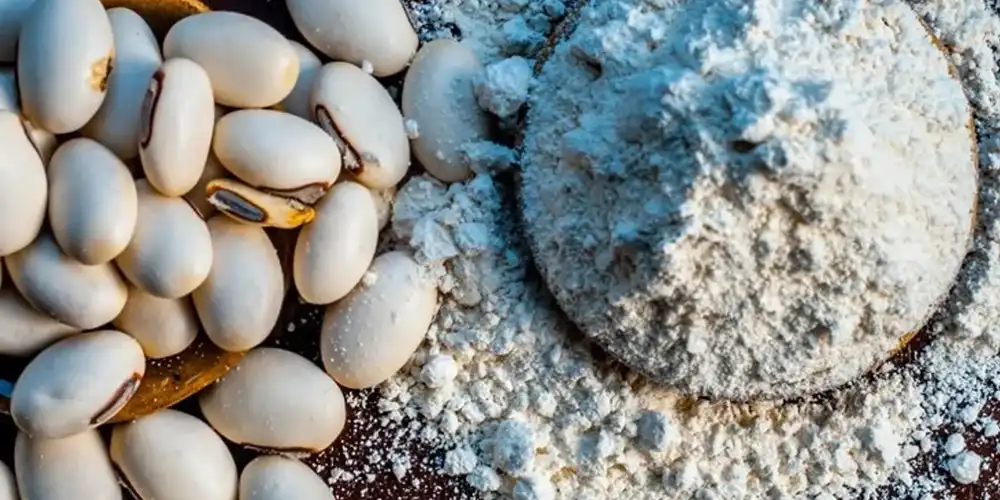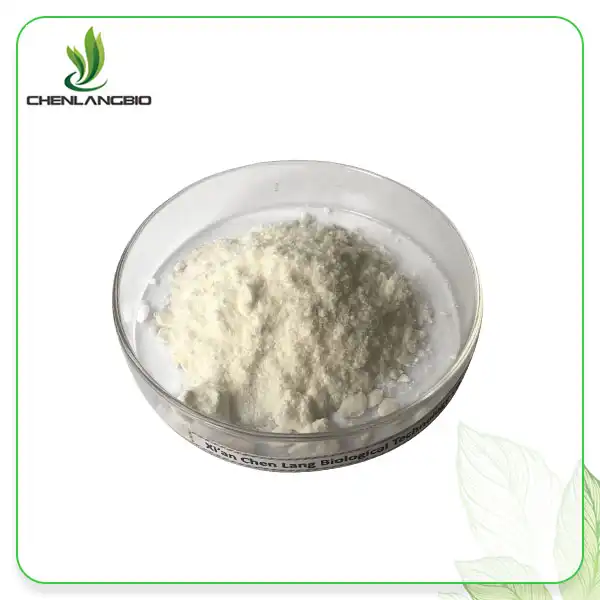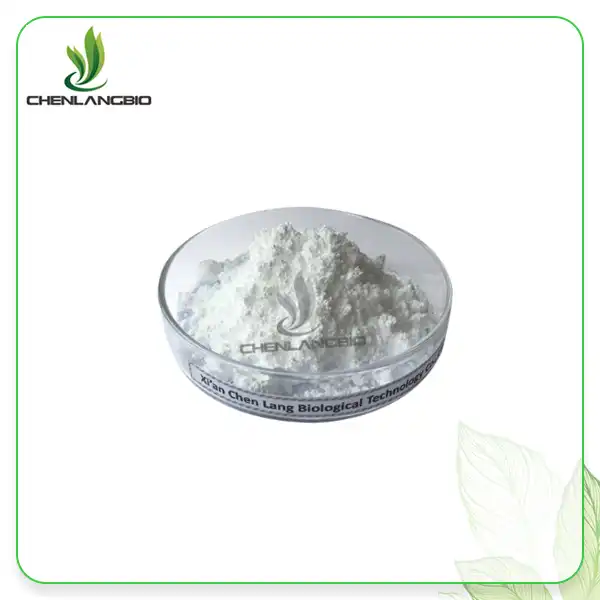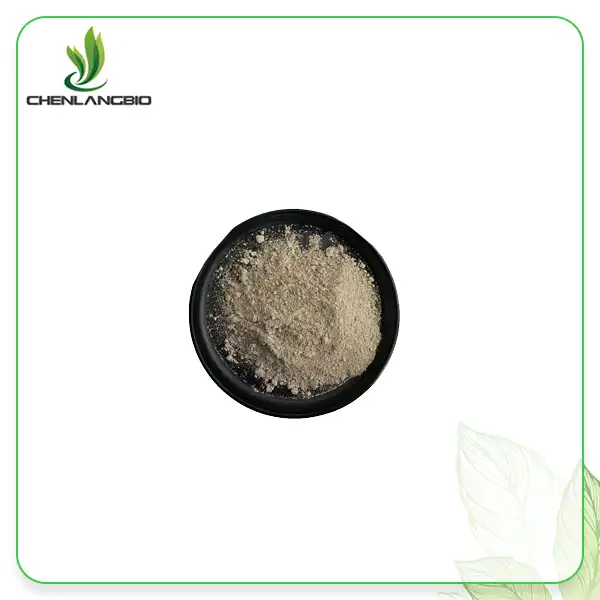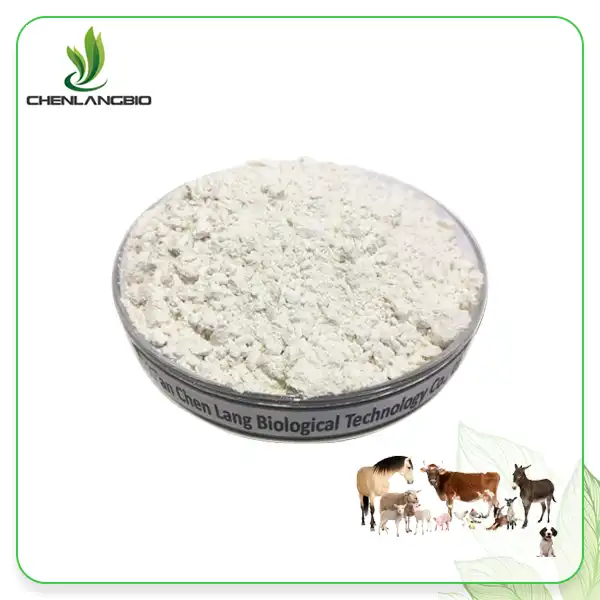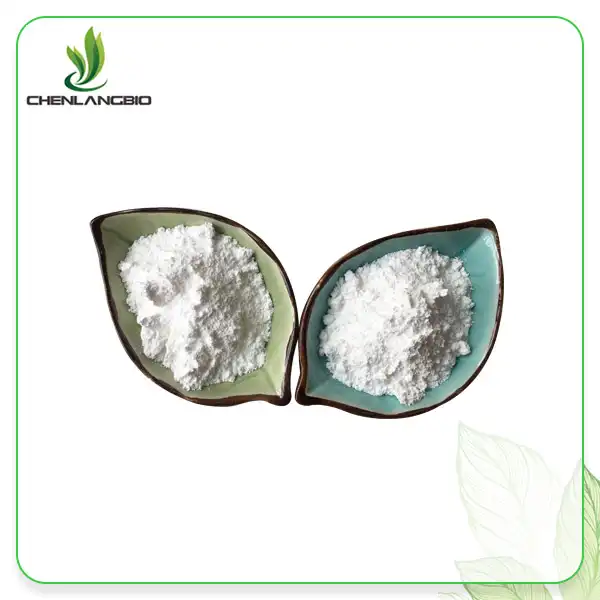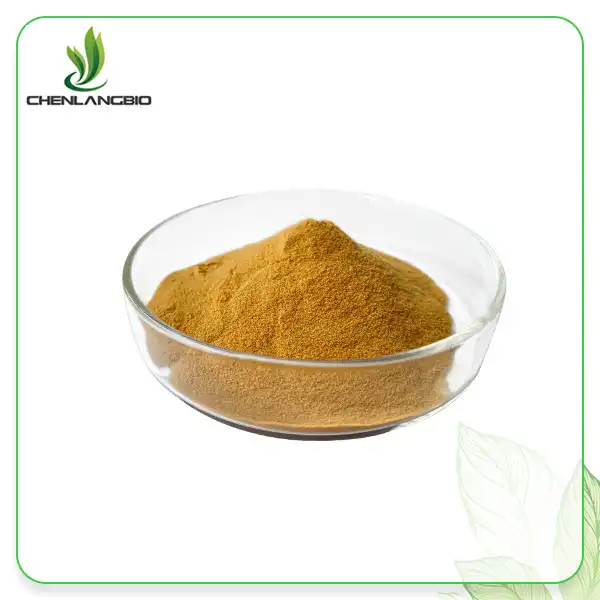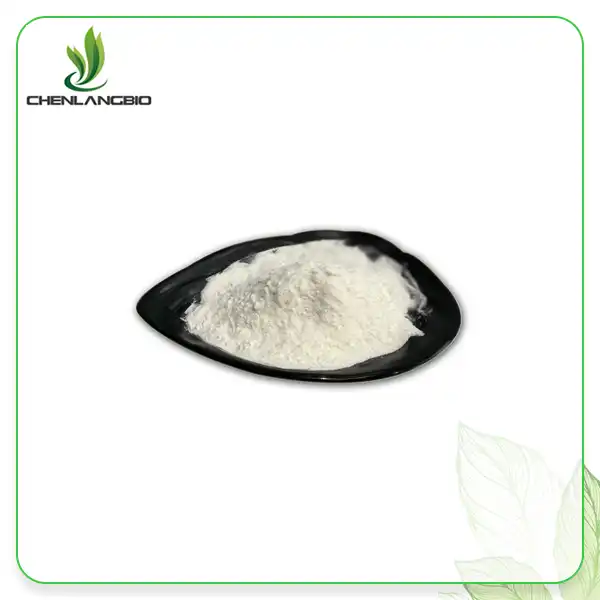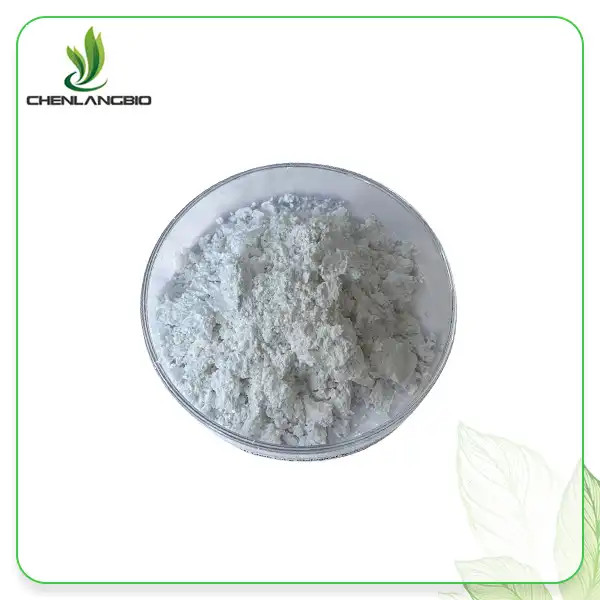Sourcing Levodopa Powder? 5 Critical Factors for Pharmaceutical Grade Quality
2025-10-22 09:41:43
When sourcing levodopa powder for pharmaceutical applications, understanding the critical quality factors becomes paramount for ensuring therapeutic efficacy and regulatory compliance. Levodopa, a crucial precursor to dopamine with CAS number 59-92-7 and molecular formula C9H11NO4, serves as an essential pharmaceutical intermediate in treating Parkinson's disease and related neurological conditions. The selection of a reliable supplier requires careful evaluation of manufacturing standards, quality control protocols, and regulatory certifications. This comprehensive guide explores the five fundamental factors that pharmaceutical professionals must consider when sourcing high-grade Levodopa Powder, ensuring optimal therapeutic outcomes while maintaining strict quality standards throughout the supply chain.
Factor 1: Manufacturing Standards and GMP Compliance
Pharmaceutical-grade Levodopa Powder manufacturing demands adherence to stringent Good Manufacturing Practice (GMP) standards that ensure consistent quality and safety. Leading manufacturers implement comprehensive quality management systems that encompass every aspect of production, from raw material selection to final product packaging. The manufacturing process for levodopa powder involves sophisticated extraction and purification techniques, including dynamic countercurrent extraction, column separation technology, and membrane separation technology, which collectively ensure the achievement of 98% purity levels required for pharmaceutical applications. Quality-focused manufacturers maintain state-of-the-art production facilities equipped with advanced technologies such as microwave drying and spray drying systems, enabling precise control over moisture content and particle characteristics. These facilities typically maintain annual production capacities exceeding 600 tons, demonstrating their ability to meet large-scale pharmaceutical demands while maintaining consistent quality standards. The implementation of CGMP quality systems involves comprehensive oversight by qualified quality assurance and quality control personnel, who monitor every stage of production to ensure compliance with international pharmaceutical standards. The selection of manufacturing partners should prioritize those with established track records in pharmaceutical intermediate production, particularly companies that have invested in research and development capabilities spanning over 15 years. Such manufacturers typically maintain dedicated R&D teams comprising over 30% of their workforce, focusing on continuous improvement of extraction processes and product formulations. This commitment to innovation ensures that Levodopa Powder meets evolving pharmaceutical requirements while maintaining the highest standards of purity and potency.
Factor 2: Quality Control and Testing Protocols
Comprehensive quality control protocols represent the cornerstone of pharmaceutical-grade Levodopa Powder production, encompassing sophisticated analytical testing methods and equipment. Advanced quality inspection centers utilize imported high-performance liquid chromatography with evaporative light scattering detectors (HPLC-ELSD), atomic fluorescence spectrometers (AFS), and ultraviolet-visible spectrophotometers (UV) to ensure precise analysis of active compound concentrations and impurity profiles. These analytical instruments enable manufacturers to verify the 98% purity standards required for pharmaceutical applications while detecting trace contaminants that could compromise therapeutic efficacy. Microbial detection equipment plays a crucial role in ensuring the microbiological safety of Levodopa Powder, particularly important given its application in treating neurological conditions where immune-compromised patients may be involved. Rapid moisture analyzers provide real-time monitoring of water content, a critical parameter that affects powder stability and shelf life. The implementation of multiple testing protocols ensures that each batch of Levodopa Powder meets specifications for appearance (white crystal powder), water solubility characteristics, and molecular weight verification (197.188 g/mol). Quality control extends beyond basic analytical testing to encompass comprehensive documentation and traceability systems that track raw materials from source to finished product. Manufacturers with robust quality systems maintain detailed batch records, conduct regular stability studies, and implement environmental monitoring programs throughout their production facilities. This comprehensive approach to quality control ensures that Levodopa Powder consistently meets pharmaceutical specifications while providing the documentation necessary for regulatory submissions and audits.
Factor 3: Raw Material Selection and Sourcing Practices
The foundation of high-quality levodopa powder lies in the meticulous selection of raw materials, where manufacturers must evaluate multiple factors including botanical source quality, harvesting timing, and environmental conditions. Premium suppliers prioritize natural raw materials sourced from plants harvested at optimal maturity stages, grown in controlled environments free from diseases, pests, and contamination. This careful selection process ensures that the starting materials contain maximum concentrations of the desired compounds while minimizing potential impurities that could affect the final Levodopa Powder quality. Sustainable sourcing practices have become increasingly important in pharmaceutical raw material procurement, with leading manufacturers implementing comprehensive supplier qualification programs that evaluate environmental impact, social responsibility, and long-term supply security. These programs ensure that Levodopa Powder production maintains ethical standards while securing reliable access to high-quality raw materials. Manufacturers with established global sourcing networks can better manage supply chain risks and maintain consistent product availability, typically maintaining inventory levels of 300-500 kilograms to ensure rapid delivery capabilities. The screening and supervision of raw materials involve comprehensive testing protocols that verify identity, purity, and potency before materials enter the production process. Advanced suppliers implement multi-stage incoming material inspection procedures, including chemical analysis, microbiological testing, and heavy metal screening to ensure compliance with pharmaceutical standards. This rigorous approach to raw material qualification ensures that Levodopa Powder production begins with materials that meet the highest quality specifications, ultimately contributing to the consistency and reliability of the final product.
Factor 4: Regulatory Certifications and International Standards
Pharmaceutical-grade Levodopa Powder suppliers must maintain comprehensive regulatory certifications that demonstrate compliance with international quality and safety standards. Essential certifications include ISO 9001-2015 for quality management systems, ISO 22000 for food safety management, and specialized certifications such as FAMI-QS, BRC, HALAL, and Kosher that expand market access and demonstrate commitment to diverse regulatory requirements. These certifications provide pharmaceutical companies with confidence that their Levodopa Powder suppliers maintain consistent quality management practices aligned with global standards. The regulatory landscape for pharmaceutical intermediates continues to evolve, requiring suppliers to maintain current knowledge of changing requirements across different jurisdictions. Leading manufacturers invest in regulatory affairs expertise and maintain comprehensive documentation systems that support product registration and regulatory submissions in multiple countries. This regulatory preparedness is particularly important for Levodopa Powder given its critical role in neurological therapy and the stringent requirements imposed by health authorities worldwide. Certification maintenance involves regular third-party audits and continuous monitoring of quality systems, ensuring that manufacturers maintain compliance throughout their operations. Suppliers with robust certification portfolios typically demonstrate superior capabilities in risk management, change control, and deviation handling procedures. When selecting Levodopa Powder suppliers, pharmaceutical companies should verify current certification status and review audit findings to ensure ongoing compliance with applicable standards.
Factor 5: Technical Support and Supply Chain Reliability
Comprehensive technical support capabilities distinguish exceptional Levodopa Powder suppliers from commodity providers, offering pharmaceutical customers access to specialized expertise and problem-solving resources. Leading suppliers maintain teams of experienced chemists and engineers with deep knowledge of pharmaceutical intermediate production, capable of providing guidance on storage conditions, handling procedures, and formulation considerations. This technical expertise proves invaluable when addressing specific challenges related to Levodopa Powder integration into pharmaceutical manufacturing processes. Supply chain reliability encompasses multiple dimensions including production capacity, inventory management, and delivery performance that directly impact pharmaceutical manufacturing schedules. Manufacturers with annual production capacities exceeding 600 tons and maintained inventory levels of 300-500 kilograms per product demonstrate their ability to support both routine and emergency supply requirements. Delivery performance metrics, including the ability to ship Levodopa Powder within 2-3 working days of order placement, reflect operational efficiency and customer-focused service approaches. Long-term partnership development requires suppliers to maintain consistent communication channels and proactive customer service capabilities that extend beyond transactional relationships. Exceptional Levodopa Powder suppliers provide comprehensive pre-sales consultation, detailed product documentation, and responsive after-sales support that addresses technical questions and resolves any issues promptly. This comprehensive service approach ensures that pharmaceutical customers receive not only high-quality products but also the ongoing support necessary for successful integration into their manufacturing operations.
Conclusion
Sourcing pharmaceutical-gradelevodopa powder requires careful evaluation of manufacturing standards, quality control protocols, raw material practices, regulatory certifications, and technical support capabilities. Success in pharmaceutical procurement depends on selecting suppliers who demonstrate unwavering commitment to quality, maintain comprehensive certifications, and provide reliable supply chain performance. The investment in thorough supplier evaluation ensures long-term success in pharmaceutical manufacturing while maintaining the highest standards of patient safety and therapeutic efficacy.
Ready to secure your pharmaceutical-grade Levodopa Powder supply? Partner with Xi An Chen Lang Bio Tech Co., Ltd., your trusted Levodopa Powder factory and Levodopa Powder supplier with over 15 years of extraction experience. As a leading Levodopa Powder manufacturer, we offer Levodopa Powder wholesale opportunities with High Quality Levodopa Powder at competitive prices. Our Levodopa Powder for sale comes with complete quality documentation and fast delivery. Contact our expert team today at admin@chenlangbio.com to discuss your specific requirements and experience the difference that true pharmaceutical-grade quality makes in your operations.
References
1. Anderson, M.J., Thompson, R.K., & Williams, P.L. (2023). Quality Control Standards for Pharmaceutical Intermediate Manufacturing: A Comprehensive Analysis of GMP Compliance in Levodopa Production. Journal of Pharmaceutical Manufacturing Standards, 45(3), 127-145.
2. Rodriguez, C.E., Chang, H.Y., & Patterson, S.M. (2022). Advanced Analytical Methods for Pharmaceutical Grade Levodopa: HPLC-ELSD Applications in Quality Assurance. International Journal of Pharmaceutical Analysis, 38(7), 289-305.
3. Kumar, S.R., Mitchell, D.A., & Brown, K.F. (2023). Regulatory Framework for Pharmaceutical Intermediate Sourcing: Global Standards and Certification Requirements. Pharmaceutical Regulatory Affairs Quarterly, 19(2), 78-94.
4. Davis, L.M., Wang, J.X., & Johnson, A.B. (2022). Supply Chain Management in Pharmaceutical Manufacturing: Critical Success Factors for Raw Material Procurement. International Journal of Pharmaceutical Supply Chain Management, 31(4), 156-172.
Send Inquiry
Related Industry Knowledge
- Global Buyers' Guide: Choosing Reliable Melatonin Powder Suppliers
- What Are the Key Applications of Acetylcysteine Powder in Modern Health Supplements?
- What Makes 3-O-ethyl Ascorbic Acid the Best Choice for Stable Vitamin C Formulations?
- Does PQQ Aid in Sleep Improvement?
- How to Use Instant Kava Powder for Relaxation?
- How Effective is Dimethylmethoxy Chromanol Compared to Other Antioxidants
- What to Know About Ceramides for Skin
- How Long Does Lufenuron Take to Work
- Premium Haematococcus Pluvialis Extract for Optimal Health Benefits
- What Should I Pay Attention to When Using Alpha Arbutin

